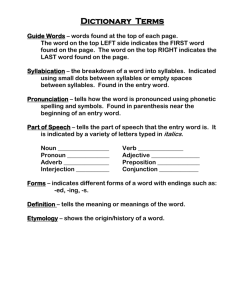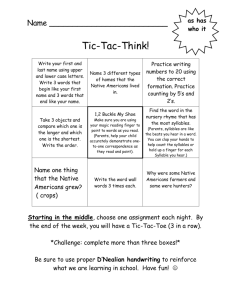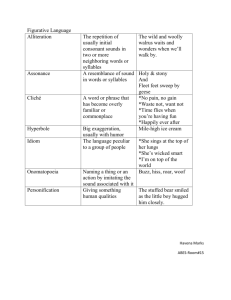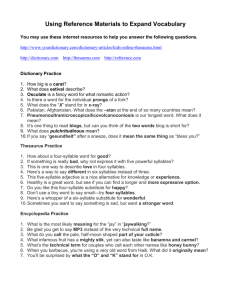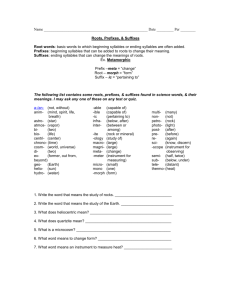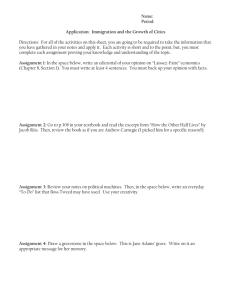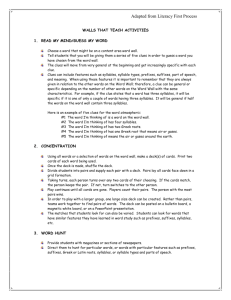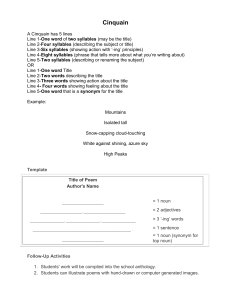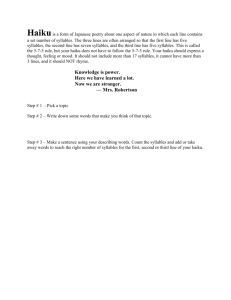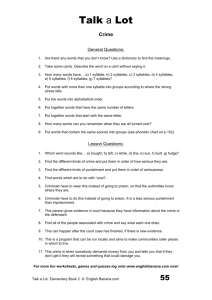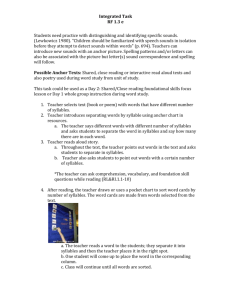Proficient Speller Strategies
advertisement
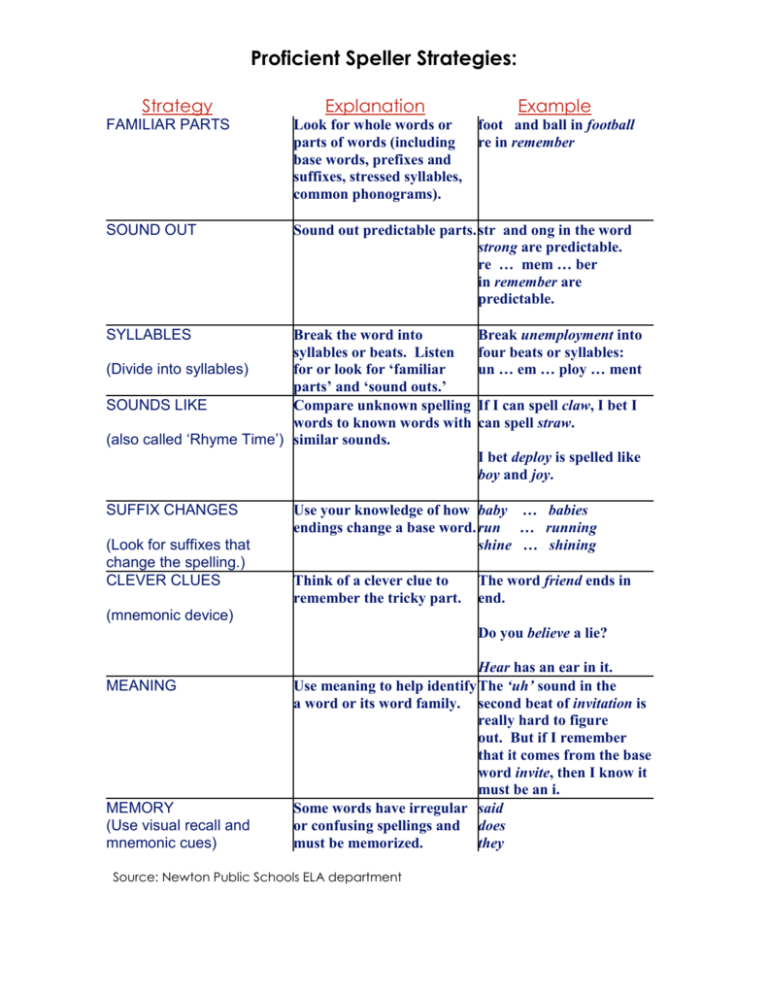
Proficient Speller Strategies: Explanation Example FAMILIAR PARTS Strategy Look for whole words or parts of words (including base words, prefixes and suffixes, stressed syllables, common phonograms). foot and ball in football re in remember SOUND OUT Sound out predictable parts. str and ong in the word strong are predictable. re … mem … ber in remember are predictable. Break the word into syllables or beats. Listen (Divide into syllables) for or look for ‘familiar parts’ and ‘sound outs.’ SOUNDS LIKE Compare unknown spelling words to known words with (also called ‘Rhyme Time’) similar sounds. SYLLABLES Break unemployment into four beats or syllables: un … em … ploy … ment If I can spell claw, I bet I can spell straw. I bet deploy is spelled like boy and joy. SUFFIX CHANGES (Look for suffixes that change the spelling.) CLEVER CLUES Use your knowledge of how baby … babies endings change a base word. run … running shine … shining Think of a clever clue to remember the tricky part. The word friend ends in end. (mnemonic device) Do you believe a lie? MEANING MEMORY (Use visual recall and mnemonic cues) Hear has an ear in it. Use meaning to help identify The ‘uh’ sound in the a word or its word family. second beat of invitation is really hard to figure out. But if I remember that it comes from the base word invite, then I know it must be an i. Some words have irregular said or confusing spellings and does must be memorized. they Source: Newton Public Schools ELA department
